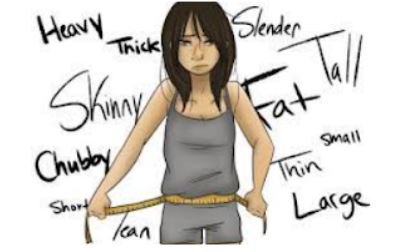5 Negative Effects Of Social Media | Tech Help Guide.
Social media is rapidly changing and evolving. Over the past decade, social media have surged and considerably impacted people's lives. The availability of the internet and smartphones has increased social media usage in everyone's life.
It has come to the point that it is tough to live without social media. While it's fun to use social media for posting photos, stories, sharing your thoughts and experiences, and getting updated with the latest news and trends, you can fall into the dark side of social media too.

Social media applications such as Facebook, Youtube, Twitter, Tumblr, Instagram, and Twitter have made it thoughtful to connect to people worldwide. We can say that it has made a positive influence on our lives. But have you thought about the negative effects of Social media?
Can you recall the last time you put down your phone for 5 minutes and picked it up in less than a minute? Did you mindlessly scroll through the feed and post comparing your life to others? If so, you might have fallen victim to the negative side of social media.
To comprehend what negative effects social media has on people's lives, I have narrowed the 10 negative effects of social media below. Keep Reading it below.
10 Negative Effects Of Social Media
While there are many positive effects of social media, we have to look at its downside. Here are the 10 negative effects of social media on people's lives.
1.Anxiety and depression
One of the most prominent negative effects social media has on people is their mental well-being. Too much usage of social media apps can lead to mental health issues such as anxiety disorder and depression.

If you spend several hours on social media, it could adversely affect your mood and state of well-being. Nothing is as it seems, and it is primarily true in the case of social media.
People spending too much time on social media such as Facebook, TikTok, Instagram, etc., are more likely to experience mood swings, loneliness, and symptoms of anxiety and depression.
Reading and browsing through the unrealistic news, post, and photos videos of others can trigger your brain to compare your lives to theirs, which is necessarily not true, causing psychological distress.
2. Self-esteem and body image issues
Social media is full of people who try to show their best version possible, whether their lifestyle, status, job, or physical appearance. You can see many influencers and models on social media that portray the best lives and appearances.

Unfortunately, social media is changing the idea of how beauty is seen. The constant disclosure of unrealistic beauty standards and images and lifestyles on social media can generate feelings of overwhelmed in people's minds.
Comparing yourself to others online makes you feel low about your body image and can lead to body image issues, dissatisfaction, lessened self-worth. It can also develop eating disorders in some people, especially teenagers suffer from low self-esteem caused due to effects of social media.
Additionally, the use of photoshop, image editors and filters are easily available. The heavily edited photos through these editors create unrealistic body images, and people tend to judge their own appearances.
3. False Sense of Connection
Social media allows us to link with people in many ways, and it is a useful application for many different things, but it is a dangerous platform. Social media makes it difficult to distinguish between reality and the fake world.

Do you regularly check your favorite vlogger's videos or that perfect model's daily routine? If so, you may have a feeling that you know them well. But in reality, this isn't true.
We assume we know someone's life story by seeing their photos, videos, stories and posts, tweets they share, but the reality is that social media shows people showcasing their best version forward.
People assume they are close to their fans, friends, and followers, but they may be fake friends on social media in truth. People feel connected to others through their posts, friendships, and even relationships that get portrayed as authentic in the virtual realm of social media and create a false sense of intimacy and connection.
4. Cyberbullying
Social media has made it possible to communicate effortlessly and make friends from all over the world. While it allows us to interact with people, friends, followers, it also enables cyberbullies and predators to terrorize and ruin their mental and physical health.

Cyberbullying has taken its toll with the availability of the internet and multiple numbers of social media. Cyberbullying can take your mental, emotional and social health to a downside level. Teenagers and adults also often fall victim to cyberbullying and cyber-flashing.
Online bullies and friends masking as anonymous users can misuse innocent users, blackmail them that can create deep mental scars, and even compel people to self-harm in some cases.
5. Social Media Addiction
Do you feel the impulse to check your social media app constantly? Or do you use social media to forget about your personal problems? You may be a social media addict, not less than a drug or other substance addict in these cases.

Social media is undoubtedly addictive, with all the latest trends, posts, stories, gossip, friends' whereabouts, but too much consumption and usage of social media can lead to social media addiction.
Suppose you're constantly checking notifications to count the likes, comments, shares, followers and get validated with these. In that case, you feel as if it is rewarding and you have achieved something, which makes you use social media more.
Social media addiction can lead to negligence of your personal life, concealing addictive behavior, stalking others excessively promoting unhealthy behaviors.
